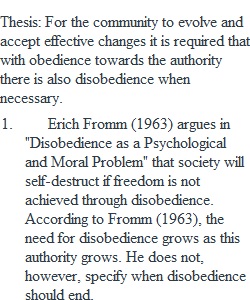


Q Finding Your Counterargument *Please post in this discussion only AFTER you've read "Lecture: Counterargument & Refutation." You will need to incorporate a counterargument into your essay. However, it can be difficult to identify a counterargument on your own. Because you've been thinking deeply about your own position, it's not an easy move to shift perspectives and figure out a counterargument. Collaboration and conversation make it much easier to find a counterargument that will work in your essay. In this discussion activity, you will share your thesis and supporting points for Essay One; then a fellow student will essentially play "devil's advocate," offering an argument or two that opposes your claims. Your Task STEP ONE: Make your first post (10 points, 75-100 words). • Referring to your prewriting and/or blocking plan, post your THESIS and three supporting POINTS (the first sentence of each proof paragraph). • We understand that this is early in the writing process. It is absolutely okay if what you have isn't perfect yet. STEP TWO: Respond to someone else's post (15 points, 100-150 words). *IF POSSIBLE, PLEASE RESPOND TO SOMEONE WHO HASN'T BEEN RESPONDED TO YET. • First, offer any advice you have about how the writer could improve their thesis and/or points. (Questions to consider--How well does the thesis meet the criteria we went over in discussion? Do all of the points connect to the thesis?) • Next, offer some potential counterarguments. In other words, respectfully argue against the writer of the original post. The counterarguments can address the overall thesis or one of the supporting points. (Questions to consider--What doubts do you have about the argument? What are some good points that contradict the writer's thesis or points? What’s something from one of the texts we read that contradicts some aspect of the original post?) Important Follow-Up: Don't Forget to Refute in Your Essay Your classmate will help you identify a counterargument. However, please remember that you can't include a counterargument in your essay without also refuting it. (To leave an opposing viewpoint unanswered would weaken your argument.) Please see the suggested refutation strategies in "Lecture: Counterargument & Refutation." Also keep in mind that a refutation is a direct attack on the counterargument, NOT a restatement of claims you've already made in the proof section of your essay.
View Related Questions